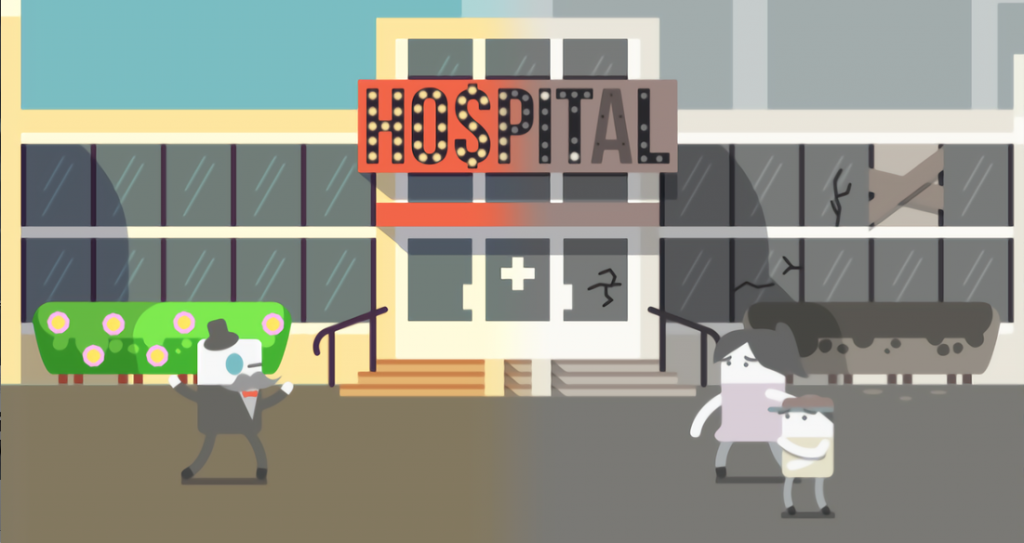
How Dr. Brian Day wants to change the public health care system
By Lauren Paulsen, Multimedia Editor
Should Canadians get health care based on their ability to pay, or based on their need?
This is the question that the residents of British Columbia and the rest of Canada should be concerned about. With the current public health care system that was set up by Tommy Douglas, often hailed the “Father of Medicare,” Canadians are able to go see their doctor without having to pay out of pocket. Instead, health-care providers are reimbursed by the provincial government at a negotiated fee-for-service rate. Although this comes from taxes that the public pays, it allows everyone to have access to health care without any discrimination based on income or ability to pay.
Dr. Brian Day is challenging this system and is bringing the case to court. Nicknamed “Dr. Profit” by defenders of the public health care system, Dr. Day wants to bring in a two-tiered health care system of public and private. He is asking that the Court remove British Columbia’s prohibition on user fees, extra billing charges (charging patients more than the legal amount), and the ban on duplicative health insurance, which is the sale of private health insurance for services already covered by the public health insurances.
Dr. Day argues that the current public health care system has long waitlists that could be bypassed by using private clinics. He states that private clinics should be allowed to provide the same services and set their own fees for patients to pay out of pocket.
This hybrid health-care system that Dr. Day proposes is a danger to the public’s ability to receive health care. Save Medicare states: “The clinic lawsuit challenges the single most important feature of the Canadian model: That health care be provided according to a patient’s need and not according to his or her ability to pay for the treatment.” If Dr. Day wins his court case, Canada would end up with a for-profit system like the US.
What this means is that people who could pay more for their health care would be able to by-pass the long waitlists, but that would leave people who couldn’t afford to do that without that ability to access health care. Although the public health-care system would still be intact, that would not last long because as people switch to private clinics, the public health care system would deteriorate and wouldn’t be able to sustain itself as the medical plan contributions would downgrade. It would receive less funding which would worsen its quality and create longer waitlists. This, in turn, would send more people to the private system, which would just serve to reinforce the vicious cycle. This increase in the private funded care comes at the expense of the public system that is accessible to everyone.
Creating this more profit-driven system similar to the US one would allow private insurance companies to deny health care to the people most likely to regularly access it. In other words, the people who need it the most won’t get it. Someone who has a chronic illness in the US is likely to go bankrupt, and many people that are unwell pay more for health care than they do the mortgage on their house. Some are even denied life-saving treatment because they can’t afford it. Even if a doctor says his or her patient requires a certain medical treatment or procedure to save the patient’s life, a private insurance company could decide not to pay it. Should the size of your wallet dictate whether you have a right to live? Dr. Brian Day says that he is challenging the Charter for the rights of all Canadians, but with the system he proposes, those that need health care most will be unable to get it.
Statistically, public health care is safer than private health care. According to an article published in the Canadian Medical Association Journal, in a for-profit system, adults have a 2 per cent higher mortality rate, and infants have a 10 per cent higher mortality rate than in a public care system. If Canada switched to a for-profit system, it would mean 2,200 more deaths each year.
Not only are the death rates higher, but for-profit systems also statistically have higher complications in their patients. In the two-tiered system that Dr. Day proposes, these complications would be sent to the public health care system to be fixed. One of Dr. Day’s own patients, a Hollywood stuntman by the name of Michael Roselli, came forward with his story of how after a knee procedure under Dr. Day’s care became infected, he was directed to his local, public hospital. Roselli spent three weeks in the hospital, six weeks on intravenous antibiotics, and underwent three more operations to get rid of his infection. Roselli states that “[Dr. Day] took my insurance company’s money and boom, he’s gone […] leaving the taxpayer-funded health care system to do all the clean-up.” Emergency physicians in BC say they often have to treat complications from work done in private clinics because many private doctors don’t do follow ups and are inaccessible outside their office hours.
There is also that slippery slope of how much of a profit a private doctor wants to make, and unfortunately sometimes this happens at the cost of the patient’s ability to get health care. In a for-profit health care system, it is easier for doctors to deny patients that might have quite complicated health problems care because it could cut into their profits to take them on. Although not all doctors are like this, it is apparent that there are some out there that only care about the money.
Interestingly, while Dr. Day alleges that the audit was a “diversionary tactic” meant to force him to drop his lawsuit, Dr. Day only submitted his lawsuit after his clinics were going to be audited by the federal government. This audit came after complaints from some of Dr. Day’s patients that he was illegally overbilling them. During his audit, it was proved that these complaints were true, and it also came to light that Dr. Day would not only charge his patients for a service, but then would charge the public health care system for the same service, earning him, illegally, twice the amount of money. It was uncovered that Dr. Day had overbilled for $500,000, and $66,000 in double-billing, all in just a 1 month period. “Dr. Profit” certainly seems like an appropriate name.
It is important that Canadians see Dr. Day for the greedy man he is. He himself stated that a wealthy person deserves a higher standard of care than everyone else: “We in Canada will give the same services to a wealthy person as to a person who isn’t wealthy, and that doesn’t make sense.” Why should wealth determine whether a person has a right to health care? Tommy Douglas would be rolling in his grave.
If Dr. Day really cared about the people he wouldn’t be advocating to be allowed to charge unlimited amounts of money to suffering people. Yes, we have problems with our current health care system. Yes, waitlists are often quite long, but setting up a for-profit system like Dr. Day proposes would not fix the system. Instead of trying to strike down a bill that keeps the health care system accessible to every Canadian, we need to look at actually improving health care services in Canada. Don’t let Dr. Day ruin it.

